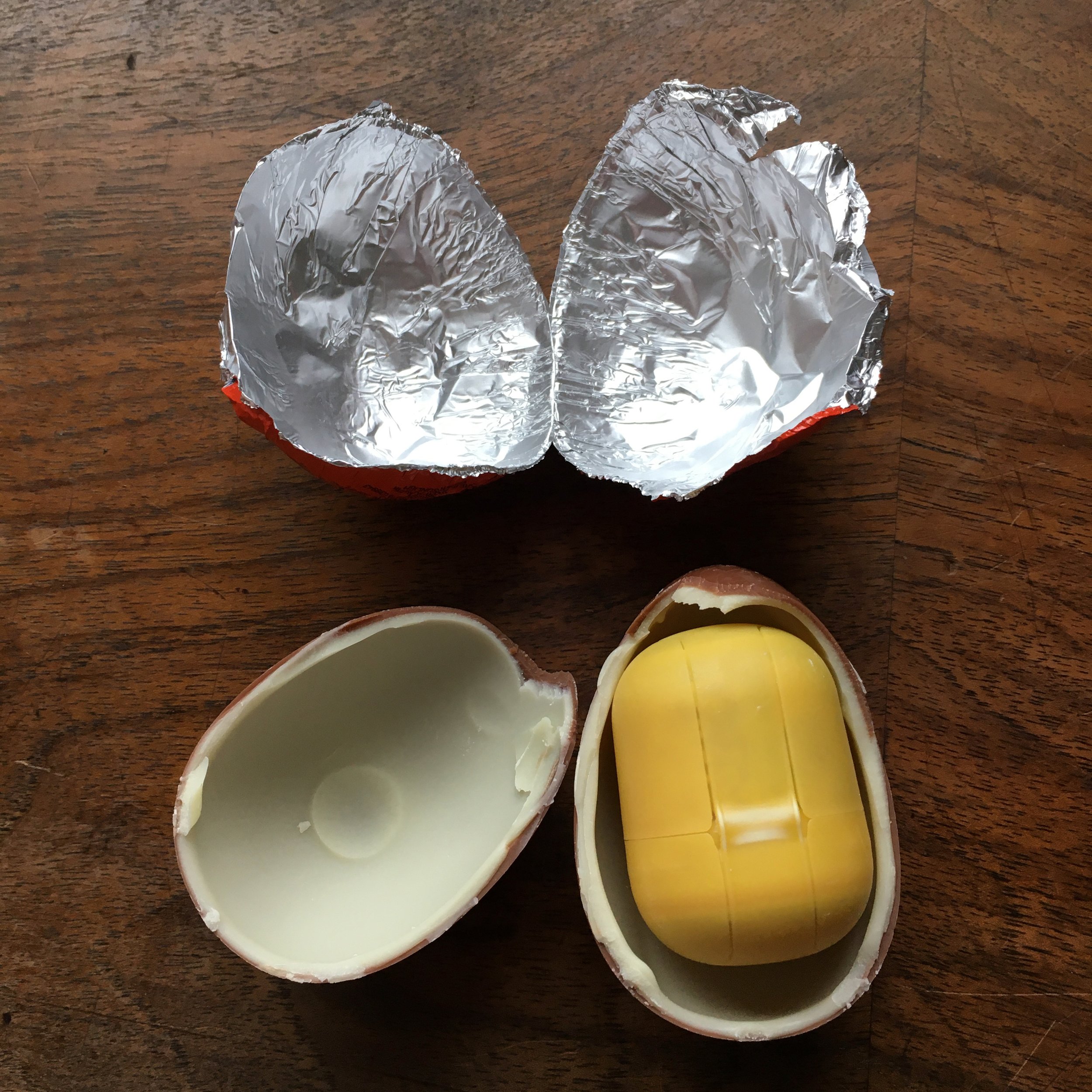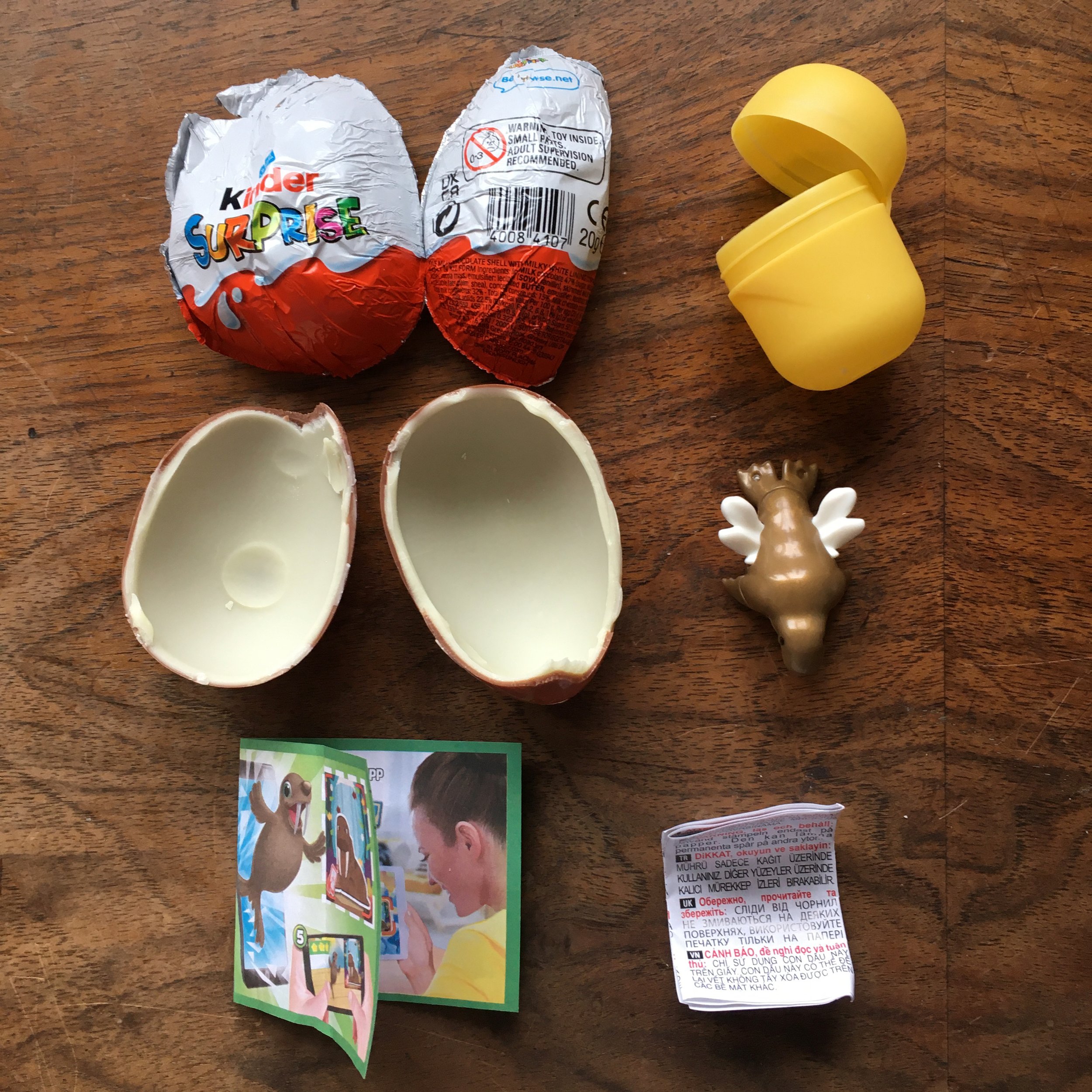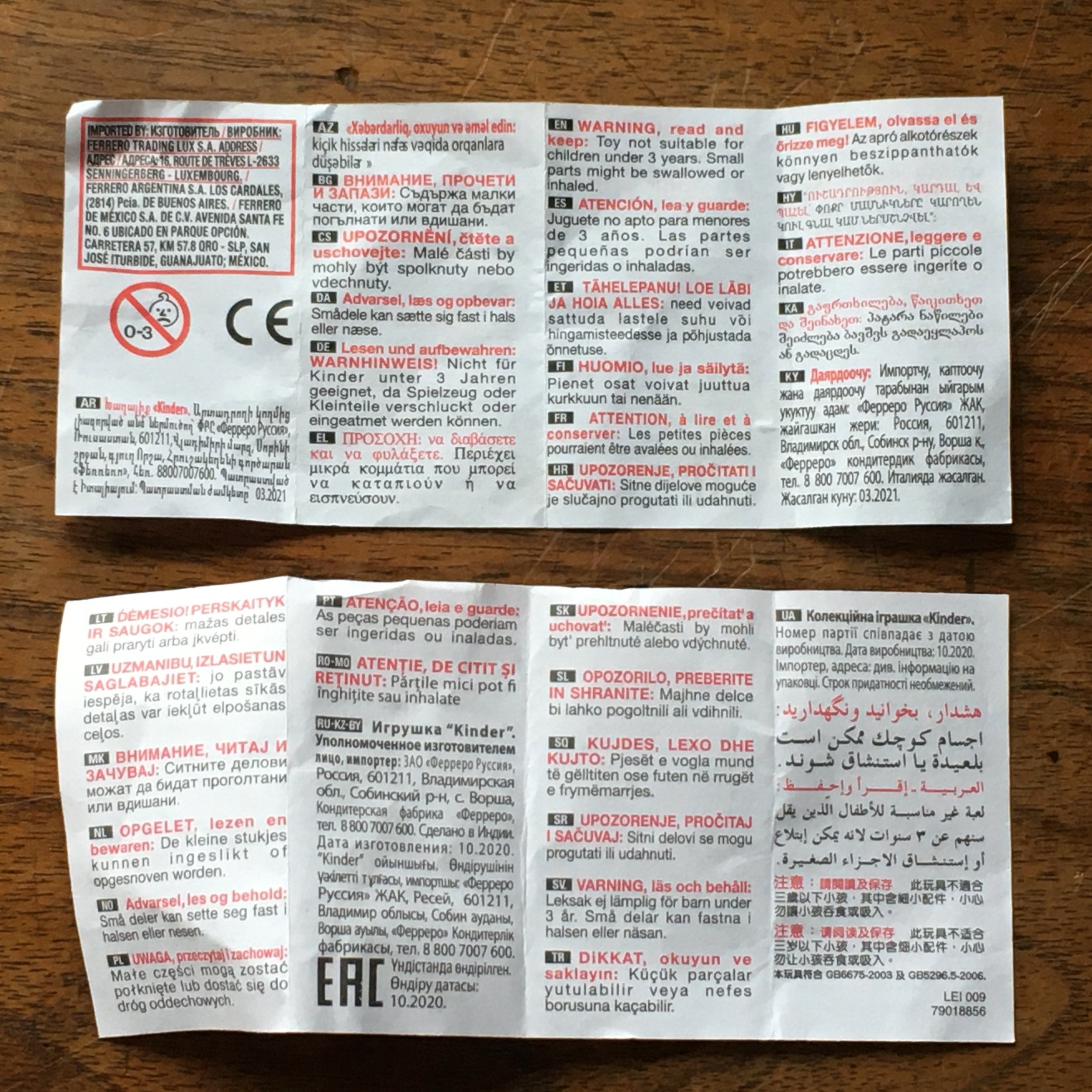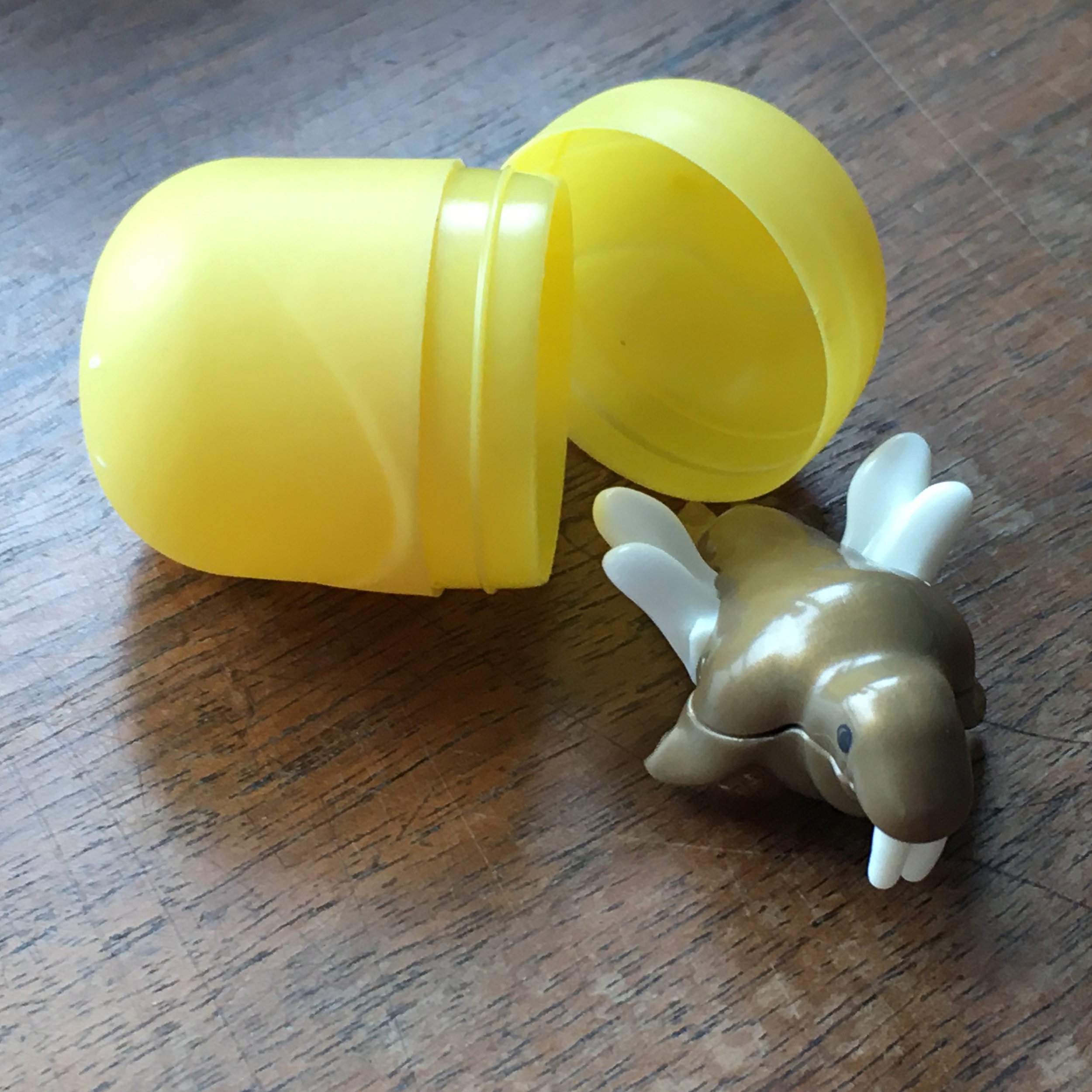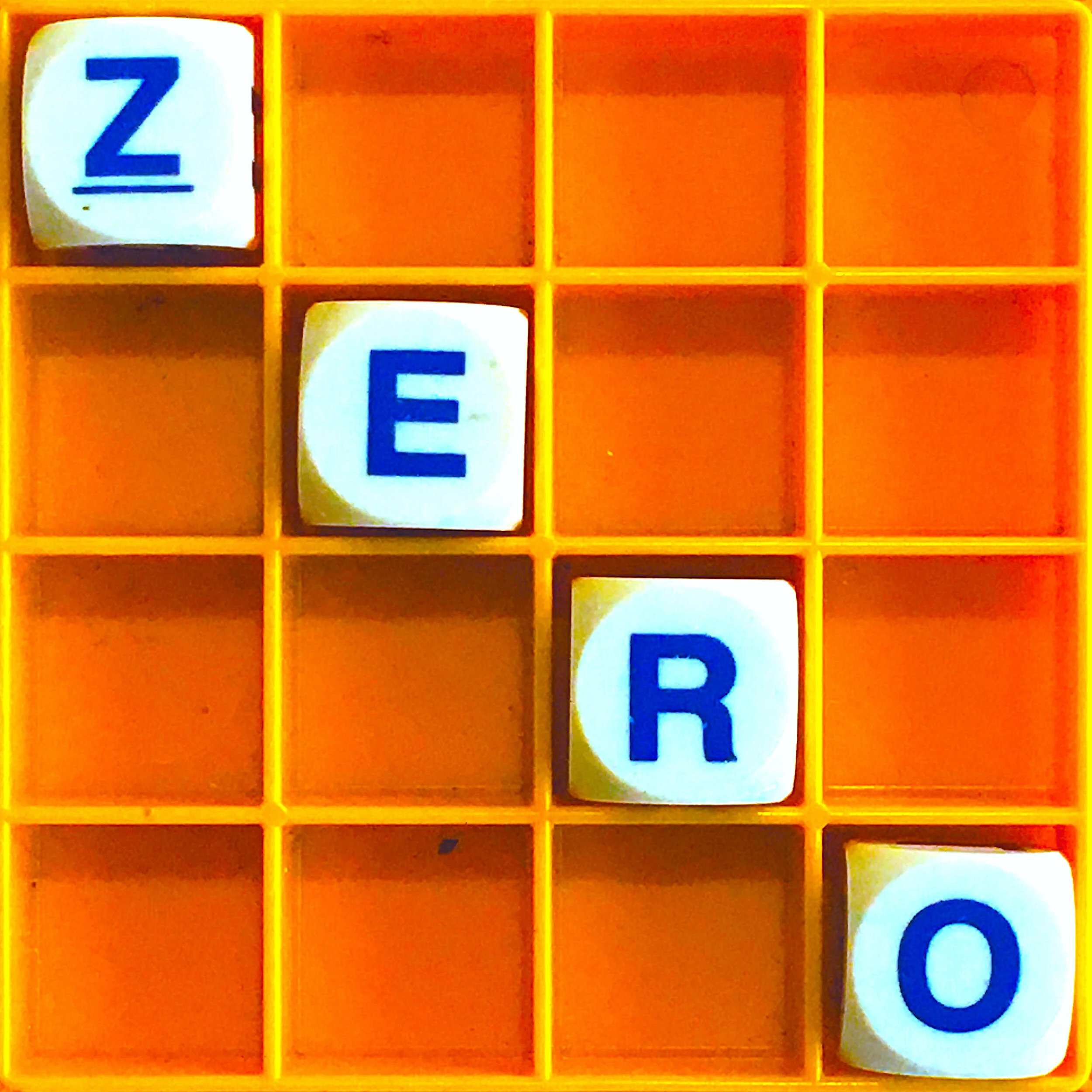KEITH KAHN-HARRIS: So let's explain what a Kinder Surprise egg is in the first place.
HZ: Yeah. It's slightly bigger than a hen's egg.
KEITH KAHN-HARRIS: It's a foil wrapped chocolate egg, and it has an outer chocolate layer.
HZ: I'm peeling off the foil, which is white and orange. And then we have the chocolate egg in two parts. I’m trying to split it without too much incident. And then inside that is a yellow capsule. And then inside the capsule:
KEITH KAHN-HARRIS: It's a self-assembly toy.
HZ: It's a self-assembly toy. Let's not get distracted by that, because that's not even the true prize, is it?
KEITH KAHN-HARRIS: No, exactly. And you'll find at least two pieces of paper. Now, one of them is a sort of a picture showing how to assemble the toy.
HZ: That's right. And then the other one, which I don't know if I've ever even paid attention to before...
KEITH KAHN-HARRIS: It's got the warning message, and it is in a literally dozens of languages on this tiny piece of paper.
Allusionist 150 The Egg's Warning transcript


